Create an IoTOptimized Mobile App Tips and Best Practices
Creating a mobile app that is optimized for the Internet of Things (IoT) is a great way to leverage the power of connected devices and provide users with a seamless experience. IoT is rapidly growing, and it is estimated that there will be over 35 billion IoT devices by 2021. With the rise of IoT, mobile app development has become more focused on customers and is primarily used in everyday situations.
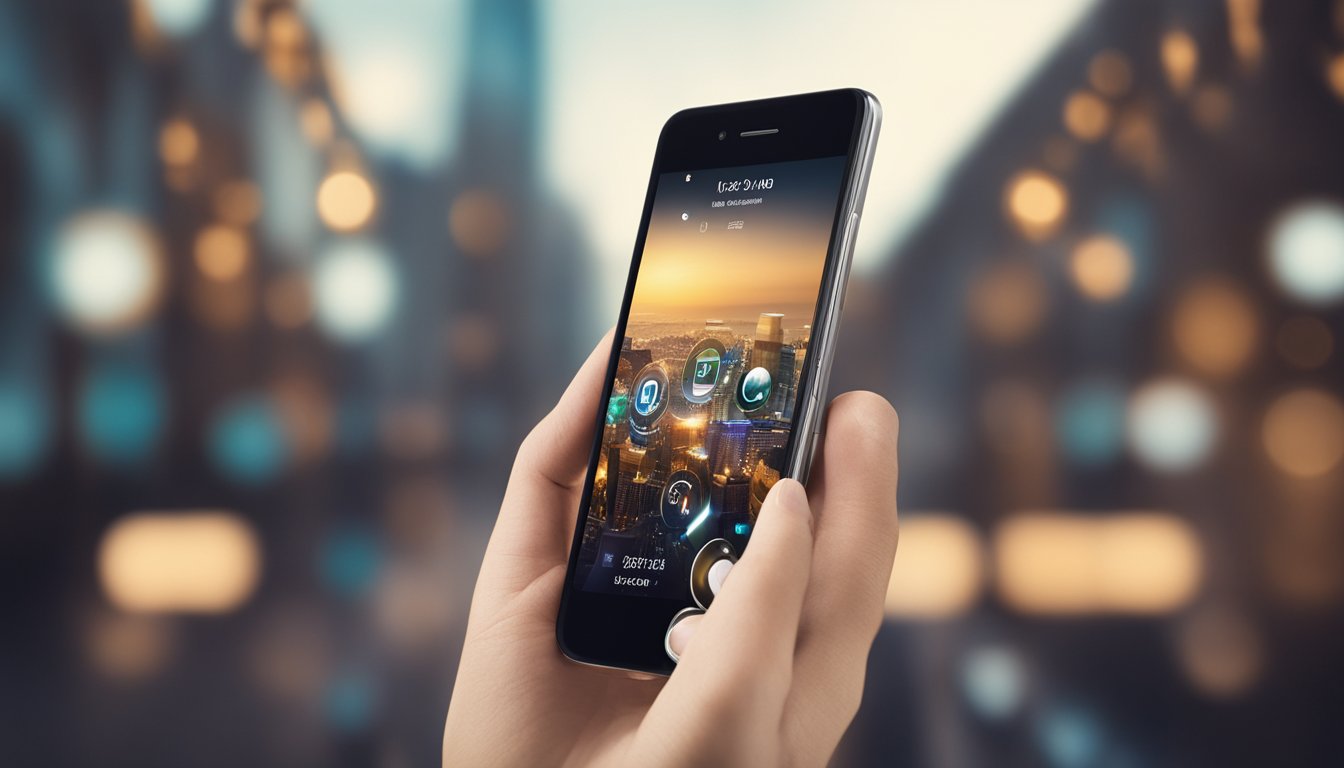
Understanding IoT and mobile apps is essential to develop an app that is optimized for IoT. IoT is a network of physical devices, vehicles, home appliances, and other items embedded with electronics, software, sensors, and connectivity to enable these objects to connect and exchange data. IoT in mobile app development is focused on customers and is primarily used in everyday situations. It has massive potential in several areas, including healthcare, smart homes, and smart cities.
Key Aspects in IoT Mobile App Development include understanding the user's needs, selecting the right platform, and ensuring security. Developing an IoT mobile app requires a unique approach compared to traditional mobile app development. It is essential to understand the user's needs and design the app accordingly. The platform selection is also crucial, and developers must choose the right platform based on the app's requirements. Security is another critical aspect of IoT mobile app development, and developers must ensure that the app is secure and protects user data.
Key Takeaways
- IoT is rapidly growing, and mobile app development is becoming more focused on customers and primarily used in everyday situations.
- Developing an IoT mobile app requires a unique approach compared to traditional mobile app development. It is essential to understand the user's needs, select the right platform, and ensure security.
- Real-world applications of IoT mobile apps include healthcare, smart homes, and smart cities.
Understanding IoT and Mobile Apps

As technology continues to evolve, the Internet of Things (IoT) has become increasingly popular. IoT is a network of physical devices, vehicles, home appliances, and other items embedded with electronics, software, sensors, and network connectivity that enable these objects to collect and exchange data.
Mobile apps have also become a significant part of our daily lives. With the rise of IoT, mobile apps have become more important than ever. IoT mobile apps are designed to work with connected IoT devices, allowing users to control and monitor their devices remotely.
IoT mobile applications are developed to connect physical devices, such as smartphones, watches, and tablets, to the internet. These apps give users more control and convenience in their daily lives by allowing them to control their smart homes, smart sensors, and even smart cars.
When developing IoT mobile apps, it is important to consider the following factors:
- Connectivity: IoT mobile apps should be designed to work with different connectivity options, such as Wi-Fi, Bluetooth, and cellular networks.
- Functionality: IoT mobile apps should be designed to perform specific functions, such as controlling smart home devices or monitoring health data.
- Performance: IoT mobile apps should be designed to work efficiently and quickly, with minimal latency and lag.
- Usability: IoT mobile apps should be easy to use and navigate, with a user-friendly interface.
- Security: IoT mobile apps should be designed to protect user data and prevent unauthorized access.
In conclusion, IoT mobile apps are becoming increasingly important in our daily lives. By understanding the factors that make these apps successful, developers can create mobile apps that are optimized for IoT devices, providing users with more control and convenience in their daily lives.
Key Aspects in IoT Mobile App Development
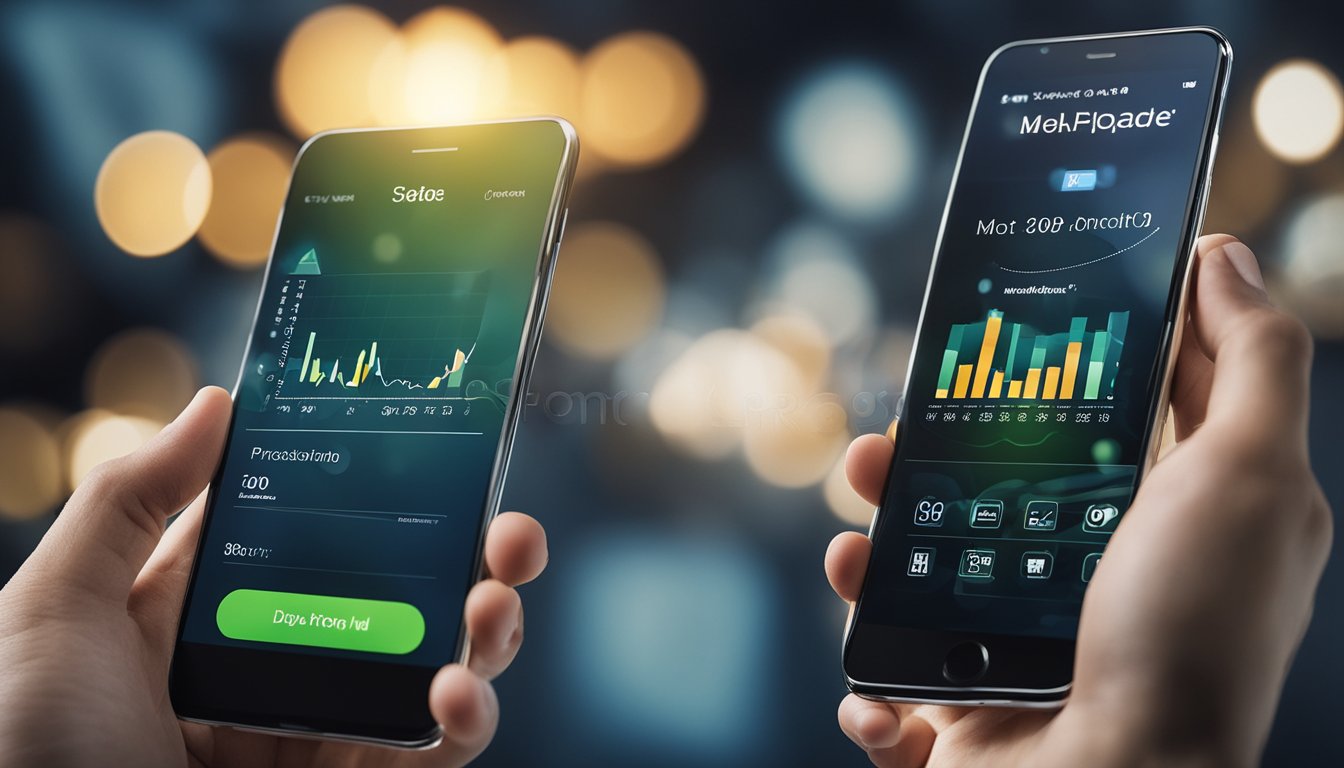
Developing an IoT mobile app requires a thorough understanding of the hardware, software, and security aspects of the IoT system. As an IoT developer, I have identified three key aspects that are essential to creating a successful IoT mobile app: hardware and connectivity, software and platforms, and security measures.
Hardware and Connectivity
The hardware of an IoT system includes low-energy sensors, biometric scanners, and other physical components that collect data and interact with the mobile device. It is important to ensure that these components are operational over Bluetooth, Wi-Fi, or 5G networks. The mobile device in question must also have the necessary hardware to support the IoT system.
Software and Platforms
The software and platform used in IoT mobile app development can have a significant impact on the app's functionality and performance. There are several development tools available for IoT app development, including IBM Watson, Microsoft Azure IoT, Google Cloud, ThingWorx, Ubidots, and Oracle IoT. These platforms provide developers with the necessary tools to create and manage IoT systems and mobile apps.
In addition to the platform, the mobile app must be optimized for the specific operating system, whether it be iOS or Android. This ensures that the app is compatible with the mobile device and provides a seamless user experience.
Security Measures
Security is a crucial aspect of IoT mobile app development, as the app will be collecting and transmitting sensitive data. Encryption and two-factor authentication are common security measures used to protect user data from unauthorized access. It is important to implement security measures at every stage of the development process to ensure that the app is secure and reliable.
In conclusion, IoT mobile app development requires a deep understanding of the hardware, software, and security aspects of the IoT system. By focusing on these key aspects, developers can create successful IoT mobile apps that provide a seamless user experience while maintaining high levels of security.
Real World Applications of IoT Mobile Apps
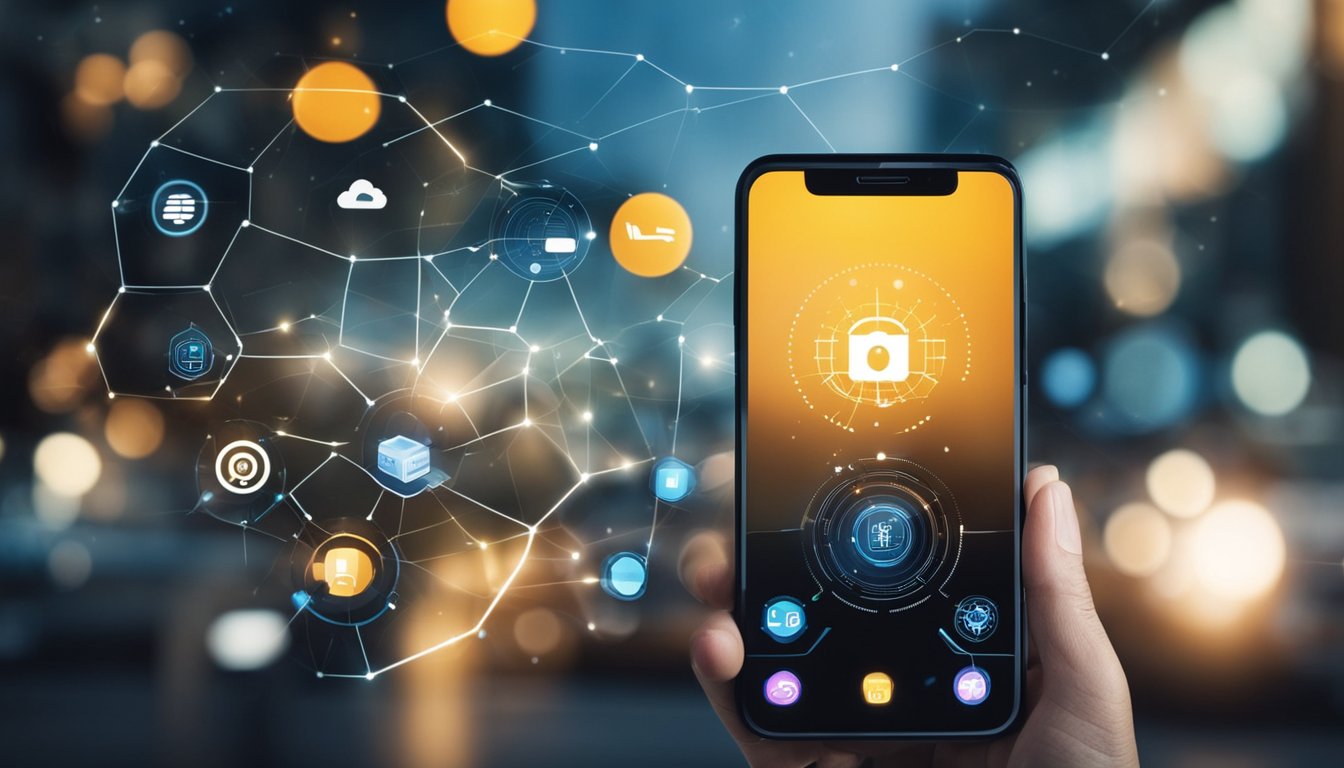
As IoT continues to mature and become more prevalent, mobile apps are becoming increasingly optimized for IoT devices. These apps are designed to leverage the power of IoT to provide real-time data, analytics, and insights. Here are a few real-world applications of IoT mobile apps.
Healthcare and Wearables
IoT mobile apps are revolutionizing the healthcare industry by providing patients with intuitive and connected wearables that track vital signs, medication adherence, and more. These apps help patients stay on top of their health and provide doctors with real-time data that can be used to make better diagnoses and treatment decisions.
Startups and enterprises in the healthcare industry are leveraging IoT analytics to improve patient outcomes and reduce healthcare costs. For example, some hospitals are using IoT devices to track patient movements and automate notifications to doctors and nurses when patients need assistance.
Retail and Logistics
IoT mobile apps are also being used in the retail and logistics industries to provide real-time tracking and insights. These apps help retailers optimize their supply chains, reduce waste, and improve customer satisfaction.
Startups and enterprises in the retail and logistics industries are leveraging IoT analytics to gain valuable insights into customer behavior, product demand, and inventory levels. For example, some retailers are using IoT devices to track customer movements and provide personalized recommendations based on their browsing history.
Smart Cities and Transportation
IoT mobile apps are being used to create smarter cities and transportation systems. These apps help cities and transportation providers optimize traffic flow, reduce congestion, and improve safety.
Startups and enterprises in the transportation industry are leveraging IoT analytics to gain valuable insights into traffic patterns, vehicle performance, and driver behavior. For example, some cities are using IoT devices to track vehicle movements and provide real-time traffic updates to drivers.
In conclusion, IoT mobile apps are changing the way we interact with technology and providing valuable insights that can be used to improve our lives. As IoT continues to mature, we can expect to see even more innovative applications of this technology in the years to come.
Challenges and Future of IoT Mobile Apps
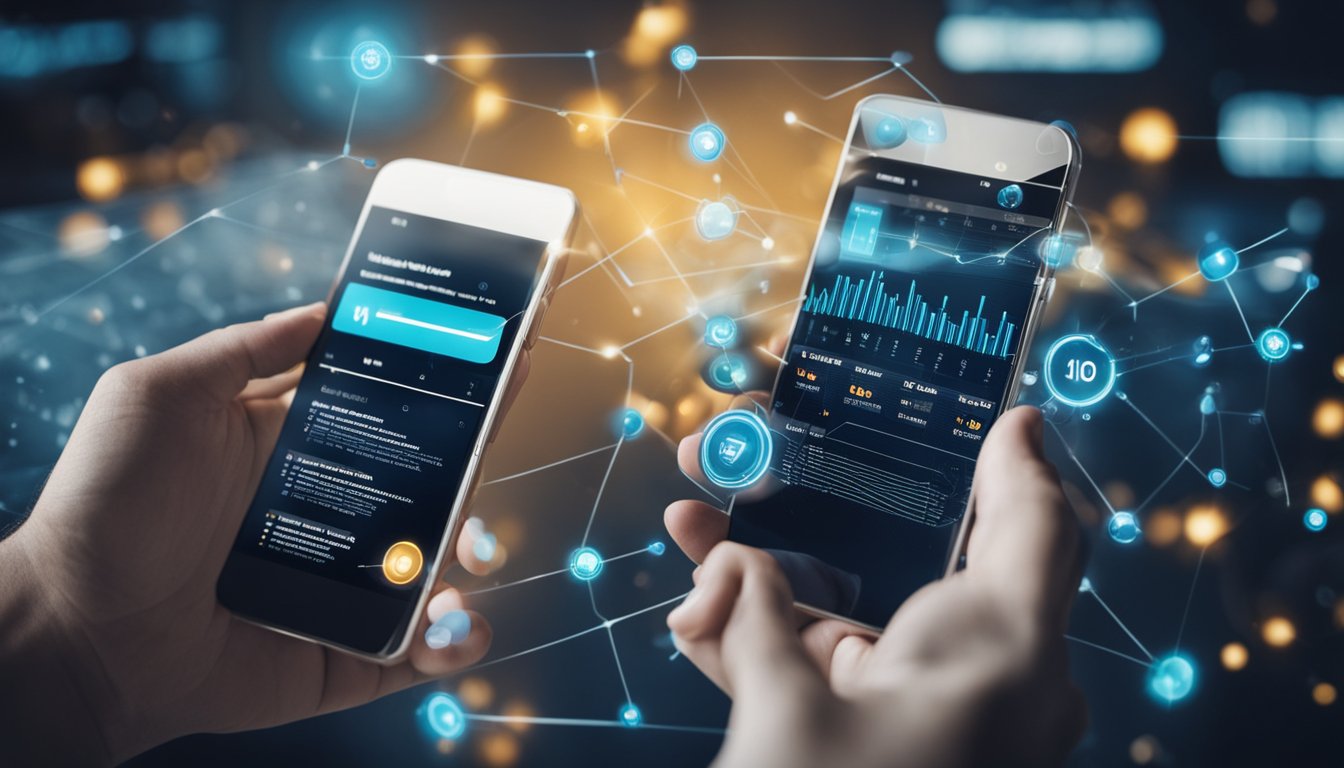
Developing IoT mobile apps comes with unique challenges and opportunities for businesses. As IoT technology continues to evolve, it is important to stay up-to-date with the latest trends and advancements to remain competitive in the market.
Challenges
One of the biggest challenges of IoT mobile app development is scalability. Businesses need to plan for the future and create a roadmap to ensure that their apps can handle increased demand and usage over time. This requires careful planning and consideration of costs, both in terms of development and ongoing maintenance.
Another challenge is data transfer. IoT mobile apps need to be able to transfer data quickly and efficiently between devices. This requires the use of network protocols such as HTTP and Docker, as well as an understanding of edge computing and cloud-based apps.
Security is also a major concern when it comes to IoT mobile apps. With so much personal and sensitive data being transferred between devices, it is important to ensure that all data is secure and protected from hackers and other malicious actors.
Future
Despite these challenges, the future of IoT mobile app development looks bright. According to Statista, the number of connected IoT devices is expected to reach 75.44 billion by 2025, which means that there will be a huge demand for customized and personalized IoT mobile apps.
Businesses that can create web apps and mobile apps that are optimized for IoT devices will be able to take advantage of this growing market and stay ahead of the competition. They will also need to focus on creating a seamless user experience (UX) that is tailored to the needs and preferences of consumers.
In addition, businesses will need to keep up with the latest advancements in IoT technology, such as the use of AI and machine learning to analyze and interpret data in real-time. This will require ongoing investment in research and development, as well as collaboration with experts in the field.
In conclusion, developing IoT mobile apps presents both challenges and opportunities for businesses. By staying ahead of the curve and investing in the latest technology and trends, businesses can create apps that are optimized for IoT devices and provide a seamless user experience for consumers.
Frequently Asked Questions
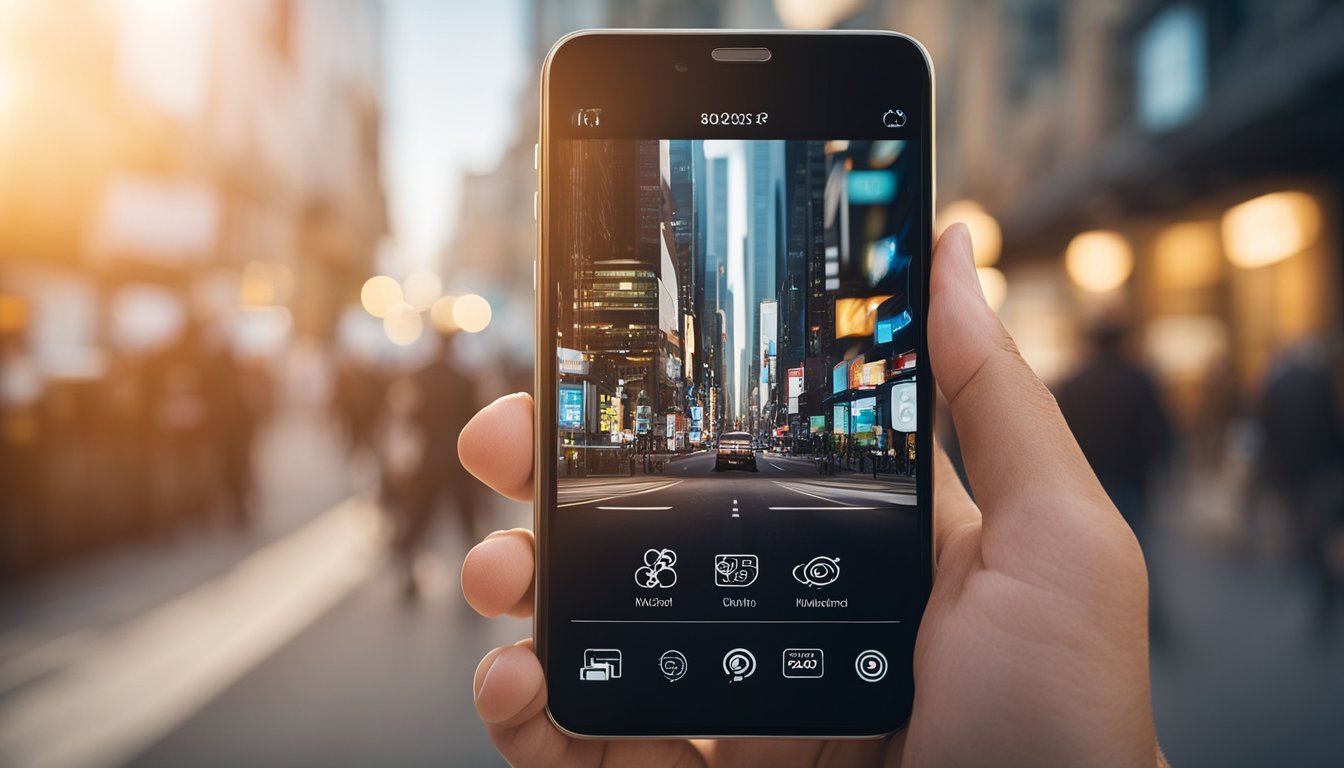
What are some popular IoT app development platforms?
There are many popular IoT app development platforms available, including AWS IoT, Microsoft Azure IoT, Google Cloud IoT, and IBM Watson IoT. These platforms provide developers with tools and resources to create and manage IoT-enabled applications.
How can I connect an IoT device to my mobile app?
To connect an IoT device to a mobile app, you will need to use a communication protocol that allows the device to send and receive data. Some common protocols include MQTT, CoAP, and HTTP. You will also need to use an IoT platform or middleware that can handle the communication between the device and the app.
What are the benefits of creating an IoT-enabled mobile app?
Creating an IoT-enabled mobile app can provide numerous benefits, including real-time data monitoring and analysis, improved automation and control, enhanced user experience, and increased efficiency and productivity.
Is it possible to build an IoT backend for a mobile app?
Yes, it is possible to build an IoT backend for a mobile app. This backend can handle the communication between the app and the IoT devices, as well as manage the data and analytics associated with the devices.
What are some considerations when creating a mobile app optimized for IoT?
When creating a mobile app optimized for IoT, it is important to consider factors such as device compatibility, security, scalability, and data management. You should also ensure that the app is designed to be user-friendly and intuitive.
How much does it typically cost to develop an IoT mobile app?
The cost of developing an IoT mobile app can vary widely depending on factors such as the complexity of the app, the number of devices being connected, and the specific features and functionality required. It is important to work with an experienced development team to get an accurate estimate of the cost.









